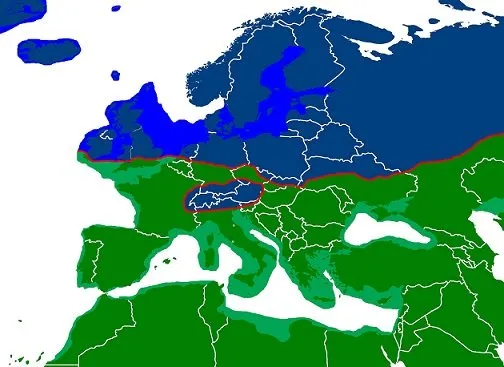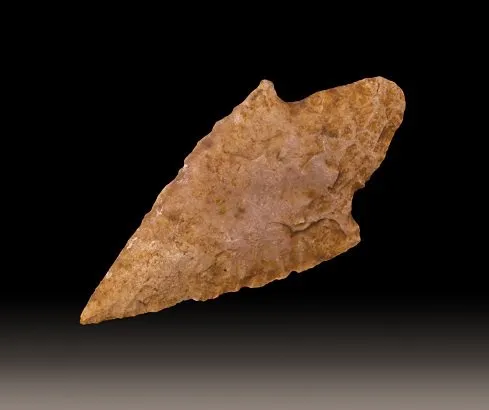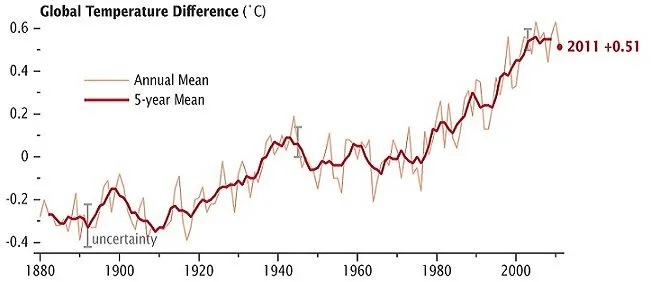Were you guys thinking I'm gonna end this series? Not until we've debunked the age-long misconceptions about evolution, and of course when you've gained a broader knowledge of the concept of evolution. This is because, the concept of evolution is among the most theorized science subjects, and as such, it is highly susceptible to misconception. Length alert: This post is somewhat lengthy, but I guarantee that if you can survive the length, you would begin to see evolution from a new perspective. Here's a recapitulation of the last episode:
The human specie has been considered as a very intelligence specie. No wonder the "sapiens" suffixed the description of humans; which translates to "thinking man". And this has been seen in the ability of humans to almost conquer their immediate environment and the Mother Earth at large, and have shown supremacy over all the other creatures. Now, you may begin to wonder if this could be as a result of our intelligence and whatnot - yes, no doubt; but have we gotten to the apex of intelligence as the human species, or is any other intelligence arising later? Will evolution have effect on the intelligence of the human species?
You can read up the fuller episode here.
INTRODUCTION
Based on every known documentary and paleontology, the African continent hosts the fossil evidences of the earliest human fossils; particularly the east Africa. But a process of evolution was initiated that led to these ancestors of ours to migrate out of Africa to other parts of the earth, and that brought about a change in the entire planet. The activities of the human species have been known to bring about noticeable alterations in Mother Earth - from our atmosphere, to the lithosphere, to other segments of our ecosystem, and these influences created by the human species on our environment in this age is what is known as "Anthropocene". In this episode, we will be looking at evolution in relation to our environment.
 [image Source: Pixabay (CC0 Licensed)]
[image Source: Pixabay (CC0 Licensed)] BEGINNING OF ANTHROPOCENE (PRE-HUMAN?)
You can't talk about human activities without making references to where it all started - that's our ancestral hominid species. There has been an argument that Anthropocene began with human species. Okay let's look at it this way: Way before the advent of tool making, there are possibilities that the species that existed then had use of tools - the only difference is; they didn't fashion them. But do you know what led to the usage of tools? We all know that the ancestors of the present day man (which was also the ancestors of the present day Apes, Gorillas et al) were majorly tree-dwellers.
Before I proceed, I'll like to correct an impression: Because we share almost 99% of our DNA with Chimpanzees does not mean we descended from them. They were not our fathers, neither are they our uncles - rather, we followed a different evolutionary pathway from a common ancestry. That means; they are more like our cousins. In view of this; it is worthy to note that the humans in this extant form DID NOT evolve from any of the Apes in this extant form - we only had a shared ancestry.
Okay let's go back to what we were discussing; our ancestral grandpas spent major part of their lives on tree tops, at least they used it as a defense mechanism to escape from predators - they would just climb up trees. This was way before the evolution of the Sahelanthropus (which is the recognized specie to be the borderline between Ape and Ape-men). But as species evolved into the Sahelanthropus about 7million years ago, they started having a little shift to land-dwelling, and that was when bipedalism (walking on two legs) had a green light. And by that era, there was a massive drought that hit the part of Africa where these species were located, and the dense forest vegetation started degenerating, and there were fewer trees. So instead of climbing trees to escape from predators, they would run for their dear lives (of course, no much trees to climb),
These hominid species were not completely terrestrial though, as they would occasionally return back to the tree. No wonder; even though they were bipedal; they were not fully erect, because they still needed the support of their hands, and they still bent over - just like the modern day Apes. But the later specie; the Australopithecus, which was recognized as a major breakthrough in the evolution of modern man, consolidated on bipedalism - no wonder they were more terrestrial than the Sahelanthropus. But if you observe closely, the Australopithecus used tools (though they weren't inferred to have designed them). The usage of these crude stone tools marked the beginning of Anthropocene.
Maybe this would give you a little insight. A particular stone-tipped hunting spear was exhumed, and was carbon-dated to have existed around 500,000years ago [ref]. And the modern humans just arrived about 250,000years ago. Do you know what this means? Obviously, these tools were actually designed by the ancestors of modern man, and they had been hunting games long before humans evolved. And if they were hunters, there are chances they would have hunted indiscriminately - there weren't poaching laws back then. This also inferred that their hunting activities would have disrupted the balance of our ecosystem (in the wild life) back then. Also, this changed the dieting of these species from the herbivorous lifestyle to carnivores.
Though the effect of this on our environment was relatively negligible. But as the later species evolved, the tools they handled became more complex and sophisticated. With the Homo habilis having the ability to fashion their own tools, a whole lot of things changed down to the Homo erectus and the Homo sapiens. The tools they invented were used for other purposes asides hunting; like agriculture - which entailed heavy deforestation process. And also with the mastery of fire by the Homo sapiens neanderthalensis et al, the burning of stuffs quickly spread like wild fire. And the impact of this was that; there was a spike in the carbon dioxide concentration on the earth (and we know that CO2 is a green house gas), which initiated the increase in the overall temperature of the earth, You wouldn’t be wrong to infer that this was the end of the last ice age (the Pleistocene epoch) - all thanks to man's activities. So you can see, the term "Anthropocene" should not only be exclusively related to the modern humans in this extant form.

INTELLIGENCE, EVOLUTION, AND ANTHROPOCENE
Man's activity on earth is a direct function of the level of intelligence possessed by each specie. For example; the Australopithecus that used crude stone tools had a much bigger brain than their fathers; the Sahelanthropus, but not as large as the succeeding specie; the Homo habilis. The Homo habilis obviously had a larger brain, and that was why they were seen to have fashioned out their own tools, instead of using some random objects as tools. Then as species evolved, more complexities were added to their brain functions, and their brain size increased. Going with the Darwinian model of evolution; these species would have adapted from one generation to the next to improve on their learning process by adding up complexities, and of course through random trials.
However, there is another learning process that is not in apposition to the natural selection proposed by Charles Darwin, and this process of learning involves tinkering adaptation, experimentation, and observation of other species to acquire knowledge from them - this is referred to as "Collective learning". This kind of learning is faster than the one related to evolution by natural selection, because the species would not have to wait for their genes to undergo the necessary transmutation. This is just like an Ape-man observing from other Ape-men and doing the same thing, instead of figuring them out themselves. And with this, the subsequent species would be better than the preceding generation - they would collectively learn from other species, and with added advantage of complexities of their brain, they would definitely be better. All thanks to collective learning.

This could also be explained with the theory of "inheritance of acquired traits" proposed by Lamarck (I treated that in the last episode), and it presupposes that the traits acquired during the life time of a specie (and that includes the knowledge acquired) can be passed on to the next generation. So the result of this is; the next generation became more adept in the use of tools, and more complex toolkits were made by the species. And here we are in this era with sophisticatedly advanced technology.
And the effect of the usage of these technologies is seen in our environment. That means; as species are evolving, they tend to interact more with their environment through their actions, and these interaction have been known to have impact on the entire Mother Earth. Maybe this would strike you; in the last 50years, there has been an increase in the overall temperature of the earth by a whopping 100% [ref] - I'm sure you know that human activities (burning of fossil fuels, deforestation, use of CFCs et al) are the major contributory factors to this. And the truth is; the human specie is still in its infancy; and so is technology, so we should expect more with further evolution of the human species. Remember, humans have not stopped evolving.
FINAL WORDS
Human activity; which is a resultant effect of our evolution, has been seen to have direct impact on our environment - this activity in this era is called Anthropocene. But contrary to the popular belief that Anthropocene was initiated with the human species, we have seen reasons to believe that they pre-dated the present day humans with enough evidence to substantiate it. The activities that started disrupting the balance our ecosystem started with our ancestral grandpas, but with the emergence of technology, these activities have been seen to increase. So, as it were, human evolution and activities are also related to technological advancements. No wonder it has been said repeatedly that technology could be the next phase in human evolution.
Thanks for reading
References for further reading:
- Human evolution
- The sahelanthropus tchadensis and their lifestyle
- Evolution of first humans
- Our ancestral Hominid species were more technologically advanced than we imagined
- Global warming as a result of man's activities
- Hominid species and tool-making
- The nature of australopithecus afarensis species
- Uprightness in man - Homo erectus
- Fossils of the australopithecus
- Homo habilis - Man with ability
All images are CC Licensed and are linked to their sources.


gif by @foundation

